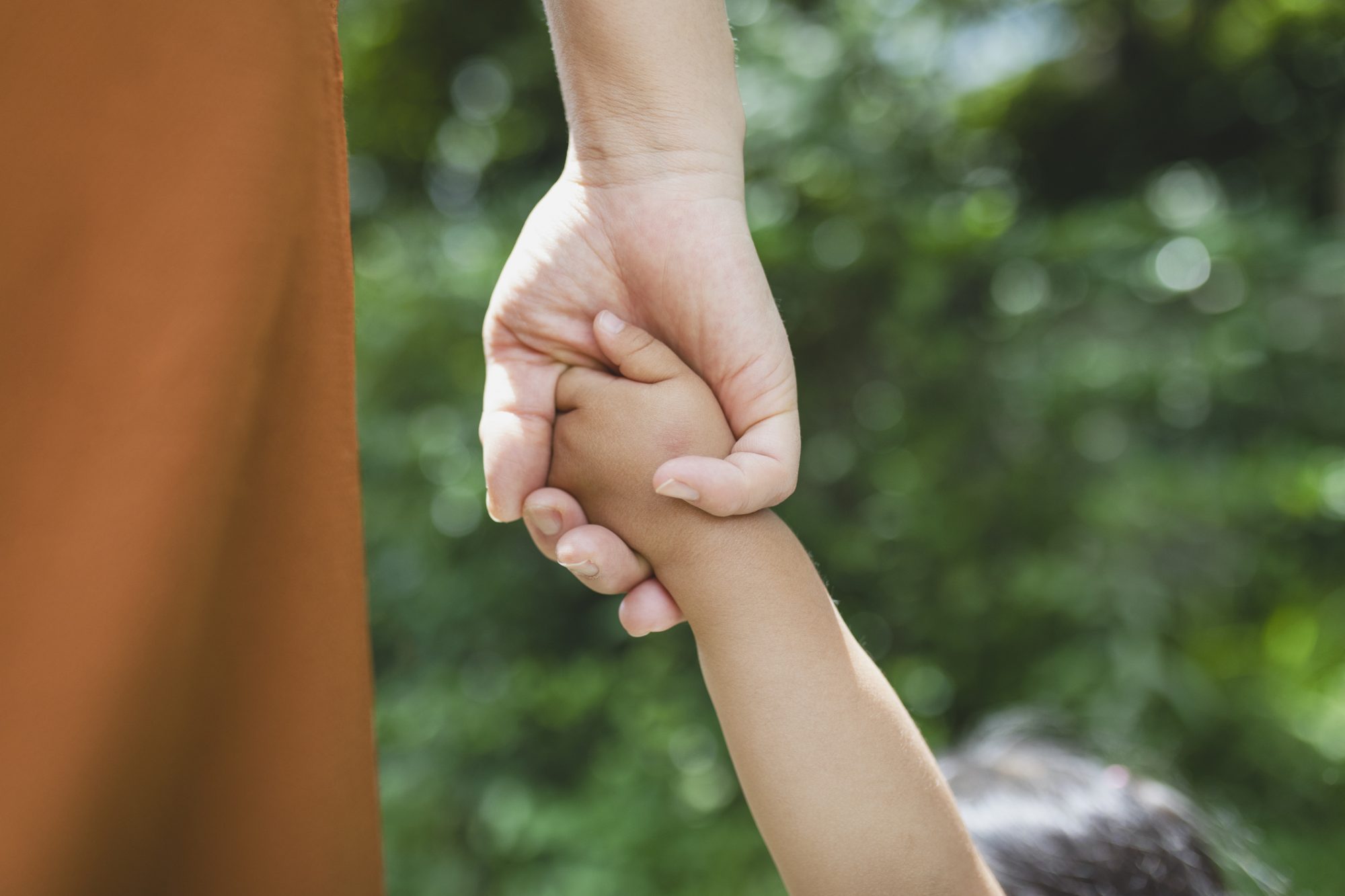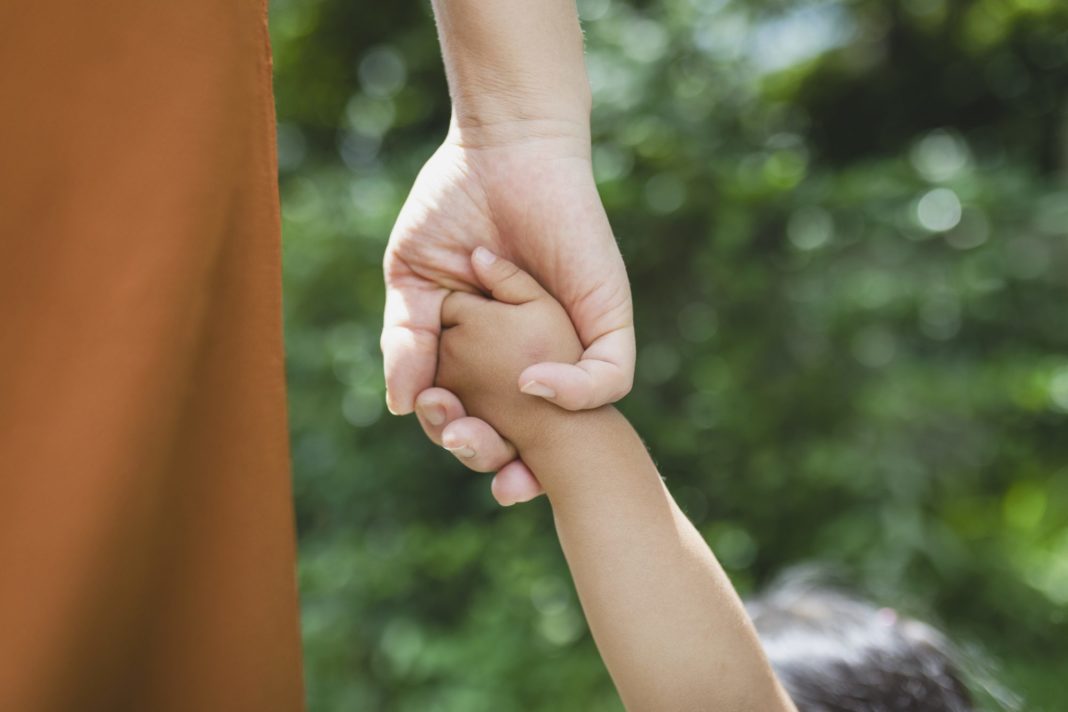
When my husband and I first considered adopting a child, we thought we had only two choices: private domestic adoption of an infant, and international adoption. Both options came with a hefty price tag. We had each started new careers; we had no expendable income, but we wanted to give a kid a great home. Then, our social worker told us we could adopt a child relinquished by birth parents to the state's foster care system. The cost? Absolutely free.
Yet a majority of parents adopt privately or internationally—a process that can cost up to $50,000, considering that private-adoptive parents are paying for the birth mother's medical care for nine months. So why aren't they fostering to adopt instead? Most adoptive parents opt for private adoption simply because, according to research published by the National Institutes of Health, most foster kids have experienced significant trauma—including domestic violence and other types of physical and emotional abuse—and many have been born substance-addicted. Some adoptive parents worry that they won't have the ability to handle the repercussions of this trauma, and they'd rather adopt a healthy infant from birth via private adoption. Then there's the fact that few people realize just how many adoptable children and teens wait in foster care for permanent families—and that the process costs little to nothing.
Plus, in addition to adopting from foster care for free, adoptive parents can apply for benefits and services that may include monthly cash subsidies and medical assistance, Rita Soronen, President and CEO of the Dave Thomas Foundation for Adoption, tells Parents. "Many states may also assist with home study fees, attorney fees, replacement of the birth certificate and travel to and from visits with the child," Soronen explains.
As for my husband and I, we filled out the Department of Human Services application and registered for the department's series of mandatory, free parenting classes. Months later, DHS matched us with a sassy, sparkling toddler just learning to walk and talk. Doctors' reports showed she had delayed motor skills and anxiety brought on by early childhood trauma and neglect. Initially, we worried, wondering how we would afford the help our child needed. Fortunately, the state stepped in to assist with the cost of medical care—even including therapeutic dance lessons for her particular needs.
"Adoption assistance represents a key component of federal and state policy to promote the adoption of children and youth from foster care and support adoptive families in meeting the childrens' varied, and often costly, needs," says Soronen. "Although eligibility criteria vary from state to state, most frequently assistance applies to children with 'special needs,' a broad definition that includes older children, children who are part of a sibling group, children of color, and/or those with specific physical, emotional, or developmental needs."
Of course, the type of financial adoption assistance evolves just as children's conditions, family circumstances, and societal understanding of mental health and behavioral issues evolve, explains Kendra Jacobson, director of Oregon Post Adoption Resource Center in Portland.
"Understandably, it's devastating when a family discovers that their child's burgeoning needs, often from residual trauma or prenatal substance exposure, far exceed what they had envisioned," Jacobson adds.
Financial assistance goes a long way in mitigating that devastation and providing resources so that a child can grow up happy and healthy. Approved expenses for federal and state adoption assistance funding range from psychological counseling to specialized medical care to academic tutoring to classes such as therapeutic horseback riding.
According to the Child Welfare website maintained by Oregon's Department of Human Services, adoption assistance functions as "an added support for families that are not able meet their child's needs without financial assistance. Adoption assistance is used in conjunction with the family's own income and resources."
Depending on the state and age of the child, parents who adopt a foster child may be eligible for assistance ranging from $200 to almost $1,000 a month, depending on the young person's particular needs. Some states provide assistance until the child turns 18; others help with costs until age 21. Over the years, my husband and I enjoyed one adoption benefit in particular—a complimentary state parks pass, which enabled us to take our daughter on adventures all over Oregon.
County financial assistance helped San Francisco-based teachers Lori Ostlund and Anne Raeff to foster—and later decide to adopt—17-year-old Juztice Solána. The teen had already lived in two foster homes after her birth mother lost unification rights. "Here in San Francisco, they send a thousand kids a year out of the city because there aren't homes for them," Ostlund explains. "Some end up three hours away, which makes parent and sibling visits difficult. The greatest needs are homes supportive of LGBTQIA kids and teens."
The house that Ostlund and Raeff share is just 800 square feet, so they converted their study into a bedroom for Juztice . "We don't have tons of money," Ostlund says. "We're teachers. I'm 56, and Anne is 62. We're already struggling to retire."
MediCal covers their daughter's physical health needs, and state adoption assistance covers therapy to help her deal with the neglect and trauma she endured as a child and younger teen. Some colleges, universities, and vocational/technical training programs offer tuition waivers to students adopted from the foster care system. "There are also services to help Juztice figure out all the college stuff, and that has been really great," Ostlund says.
My own daughter just started high school. She's strong and athletic and no longer needs therapy. She takes 10 dance classes a week, and plans on performing professionally while working as a dance teacher for children with disabilities. Looking at her, you'd never guess that this was a kid who once struggled with motor skills and clinical anxiety.
She had a rough start in life, but thanks to devoted parenting and a little financial assistance from the state, she's grown into an exuberant and talented teen with a passion for helping those most in need.
Resources for Parents Adopting from Foster Care
AdoptUSKids
North American Council on Adoptable Children
Child Welfare Information Gateway
Foster Coalition
Dave Thomas Foundation for Adoption
































